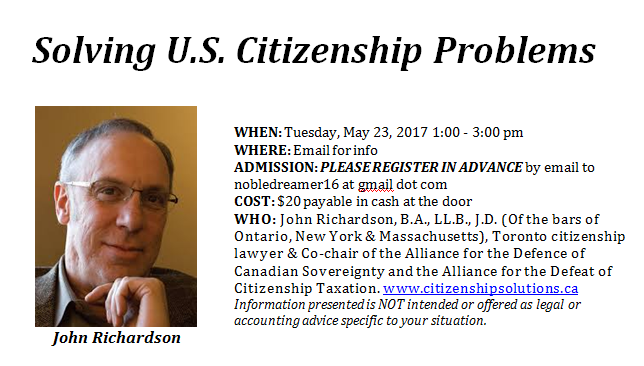The initial reaction of the Canadian government to FATCA can best be described by a letter then-Finance Minister, the late Jim Flaherty wrote, intended to be placed in major American newspapers.Virtually no one believed there would be any reason for the U.S. to impose this given Canada is a higher tax jurisdiction and owing annual income tax was rather unlikely. Back in 2012, in spite of all the scaremongering created by the IRS and foreign tax compliance practitioners, the underlying hope/belief of “US Persons” in Canada was that it would be impossible to get around the Canadian Charter of Rights and Freedoms. In spite of the fact that the first Model 1 IGA was released on 26 July 2012 by the US Treasury. The IGA was developed cooperatively with France, Germany, Italy, Spain and the United Kingdom.
The post below was written over a year before the Canadians signed the IGA agreement on Feb 5 2014. Interestingly enough, it was written on the same day as a letter written by Peter Hogg, perhaps THE most important constitutional lawyer in Canada. This letter was sent to the Department of Finance and was welcome news.
“Note that the prohibited grounds of discrimination

include ‘national or ethnic origin’, and the Supreme Court has held that citizenship is an ‘analogous ground’ also prohibited by s. 15(1).”
(Andrews v. Law Society of BC (1989) 1 S.C.R. 143)…
“The point of this letter is to urge the
Government not to agree to an IGA which would call for foreign legislation which would offend s. 15
of the Charter.”
Perhaps I just have a bad memory but it is curious to me now, that there is such a difference in the time some of our main allies signed and when we signed. I only recently (and surprisingly) learned that the U.K. and Germany do not have anything comparable to our Charter. Could that be a reason they were more willing to sign earlier on in the process? Does it mean the Canadian government at first considered the possibility that any action they took would not be able to withstand a Charter Challenge? And if so, what was it that made them change their minds? How did they come to believe they could get away with changing a law to break the law? Bill C-31 is the only of the clearly unconstitutional laws that the Trudeau government refuses to budge on (the others being C-23 C-24 & C-51).
@DiLebouthillier Oh the bloody irony-U have nerve 2 tell dual CDNs they need 2 be transparent 2 US yet U HIDE truth https://t.co/f6oMz5PMqC
— Patricia Moon (@nobledreamer16) June 18, 2017
While Canada clearly failed when it had the chance to stand up to the U.S. government, perhaps we can count on the Supreme Court of Canada, in the end, to demonstrate leadership by living up to the ideals enshrined in the Charter.
*******
Reposted from renounceuscitizenship blog on December 21, 2012.










